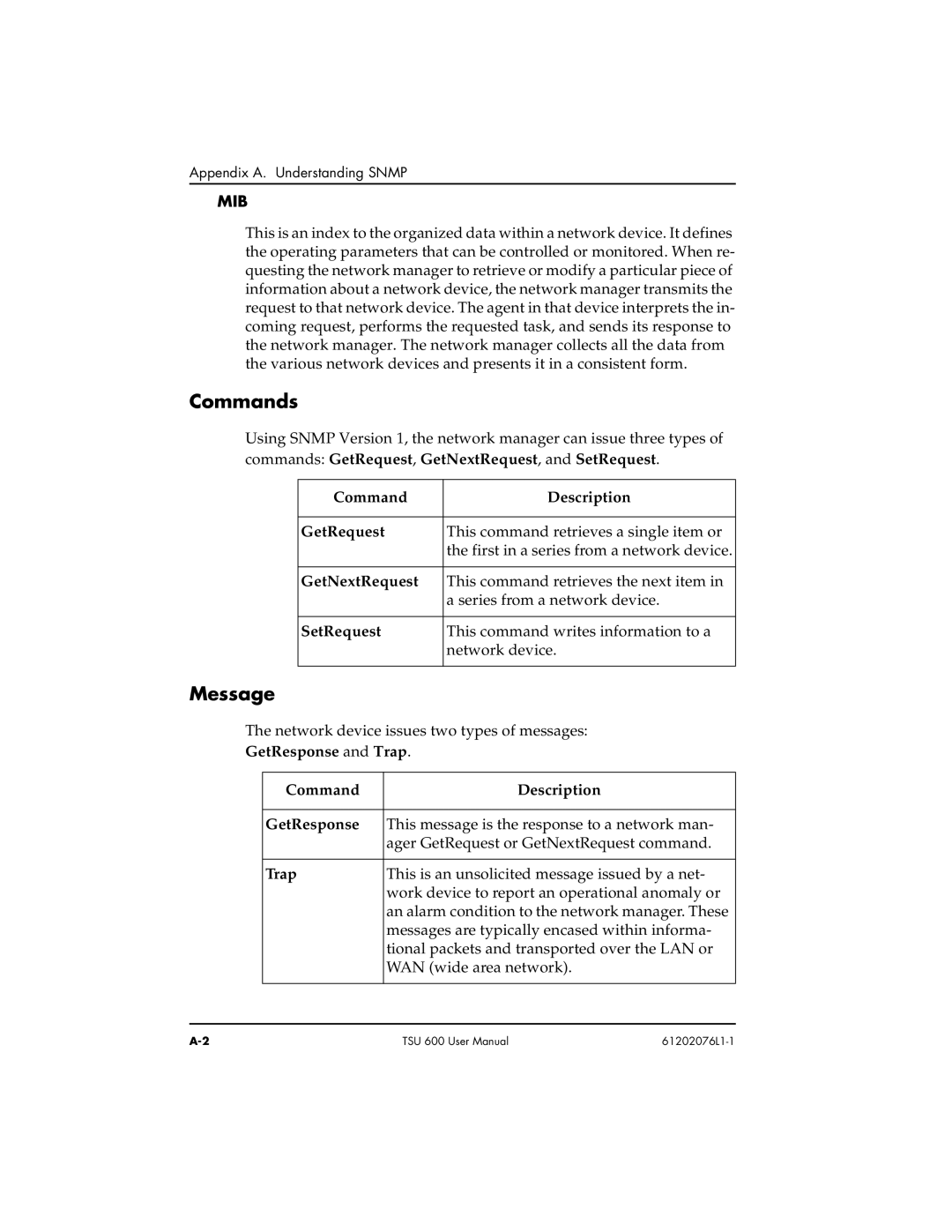
Appendix A. Understanding SNMP
MIB
This is an index to the organized data within a network device. It defines the operating parameters that can be controlled or monitored. When re- questing the network manager to retrieve or modify a particular piece of information about a network device, the network manager transmits the request to that network device. The agent in that device interprets the in- coming request, performs the requested task, and sends its response to the network manager. The network manager collects all the data from the various network devices and presents it in a consistent form.
Commands
Using SNMP Version 1, the network manager can issue three types of
commands: GetRequest, GetNextRequest, and SetRequest.
Command | Description |
|
|
GetRequest | This command retrieves a single item or |
| the first in a series from a network device. |
|
|
GetNextRequest | This command retrieves the next item in |
| a series from a network device. |
|
|
SetRequest | This command writes information to a |
| network device. |
|
|
Message
The network device issues two types of messages:
GetResponse and Trap.
Command | Description |
|
|
GetResponse | This message is the response to a network man- |
| ager GetRequest or GetNextRequest command. |
|
|
Trap | This is an unsolicited message issued by a net- |
| work device to report an operational anomaly or |
| an alarm condition to the network manager. These |
| messages are typically encased within informa- |
| tional packets and transported over the LAN or |
| WAN (wide area network). |
|
|
TSU 600 User Manual |
